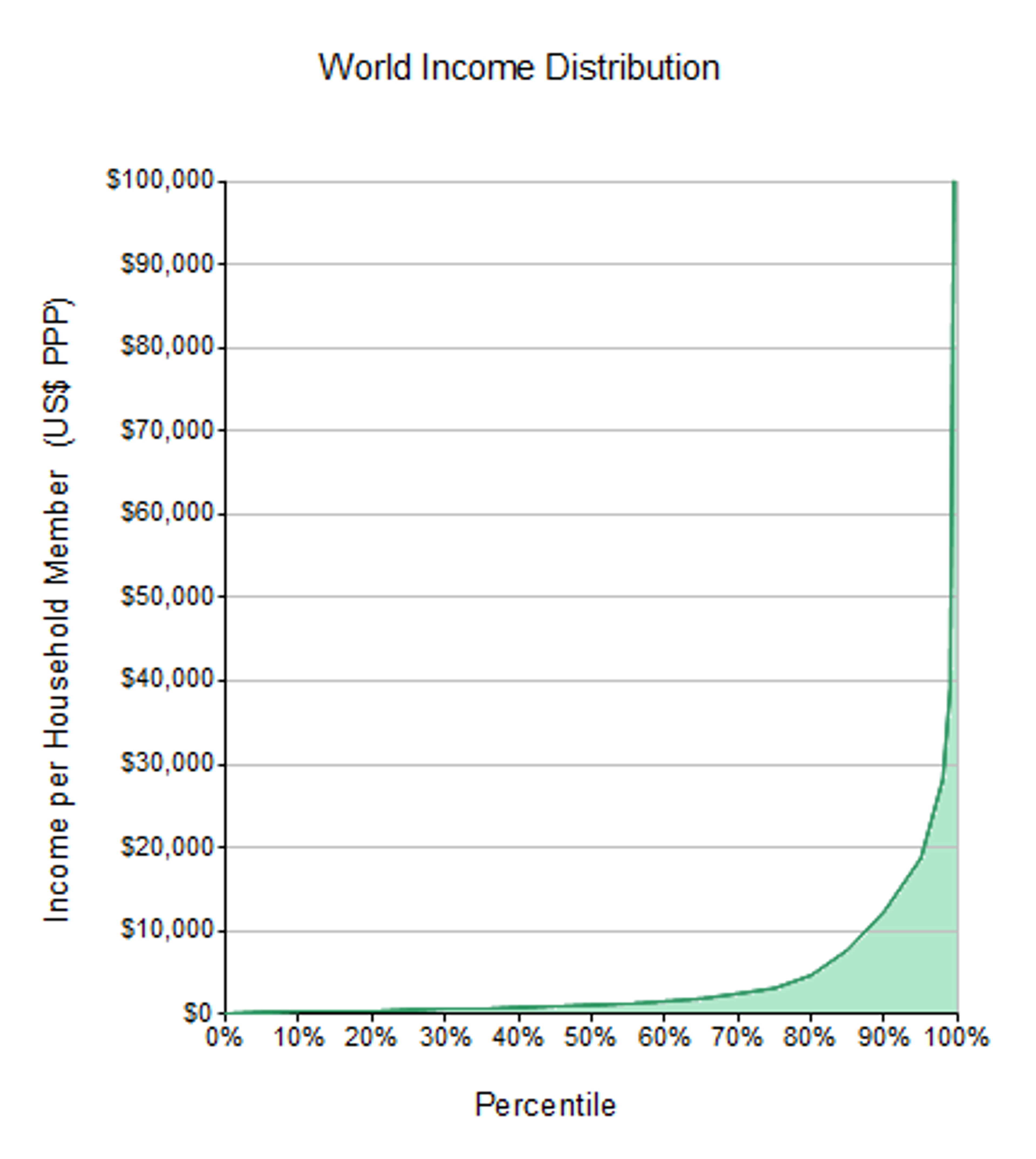
According to data gathered by the fundraising site JustGiving, Bedford is the most generous town in the UK, with 41,631 givers, £1,145,967 raised, and a population of 79,150. The BBC reports on the ‘solidarity’ this reflects about the town, and the ‘sense of personal responsibility’ of its inhabitants. This information is very useful as a snapshot of JustGiving’s prevalence in the UK, but it might not be much use to anyone else. Here’s why.
First, these figures are taken only from JustGiving campaigns, and don’t include the wealth of donations given outside of this site, given in cash, direct debit for example. For instance, £9.3 billion was donated in 2012 by UK adults (a representative figure for the last few years), whereas Justgiving have raised £1.5 billion since their inception in 2001. The total amount raised in 2014 is likely to be close to 9 billion, and the amount raised by JustGiving in 2014 is definitely lower than 1.5 billion. So a conservative estimate of donations that are not accounted for in this survey is £7.5 billion. While making these results public is good practice in transparency and may incentivise people to launch their own campaigns, it by no means shows the full picture.
Despite the lack of insight afforded by such reports, it poses some interesting questions about why people give, and what might incentivise people to donate even a little. The bystander effect provides some interesting insights into the benefits surrounding giving as part of a community: The effect occurs when it is clear that a certain action needs to be taken, but that a group of witnesses are doing nothing about it. This disincentivises individuals from helping themselves. Having other people around you who donate is a great incentive to donate to charity yourself, and this is one of the things that members find so helpful about being part of Giving What We Can’s community. Generosity from other members only perpetuates the norm of donating to charity.

Research from the Charities Aid Foundation on why people give has repeatedly shown a “sense of duty to give back to society and tackle inequality”. This is something that is reflected in Giving What We Can’s members too. For instance, Gerry Mugford’s “motivation comes from a desire to help people worse off than me”. When one gets a sense of the scale of the inequality in the global distribution of wealth, it’s no surprise that they should feel motivated to give something back. Giving What We Can’s calculator shows that someone on an average UK salary is in the richest 4% of the world’s population, and would easily stay in the richest 4% even if they donated 10% of their income.
There are many incentives to be generous, and some of the numbers I’ve quoted hopefully show just how generous we can be. However it remains crucial to think about the impact your donations will have. For instance, provision of deworming pills shown to be over 20 times as effective at increasing school attendance than providing uniforms or scholarships. Doing some research into what charities can use your money in the best way will thus make the difference between your donation being another drop in the ocean and your donation saving lives. If you want to find out about the best ways of donating, take a look at our research, or get in touch.